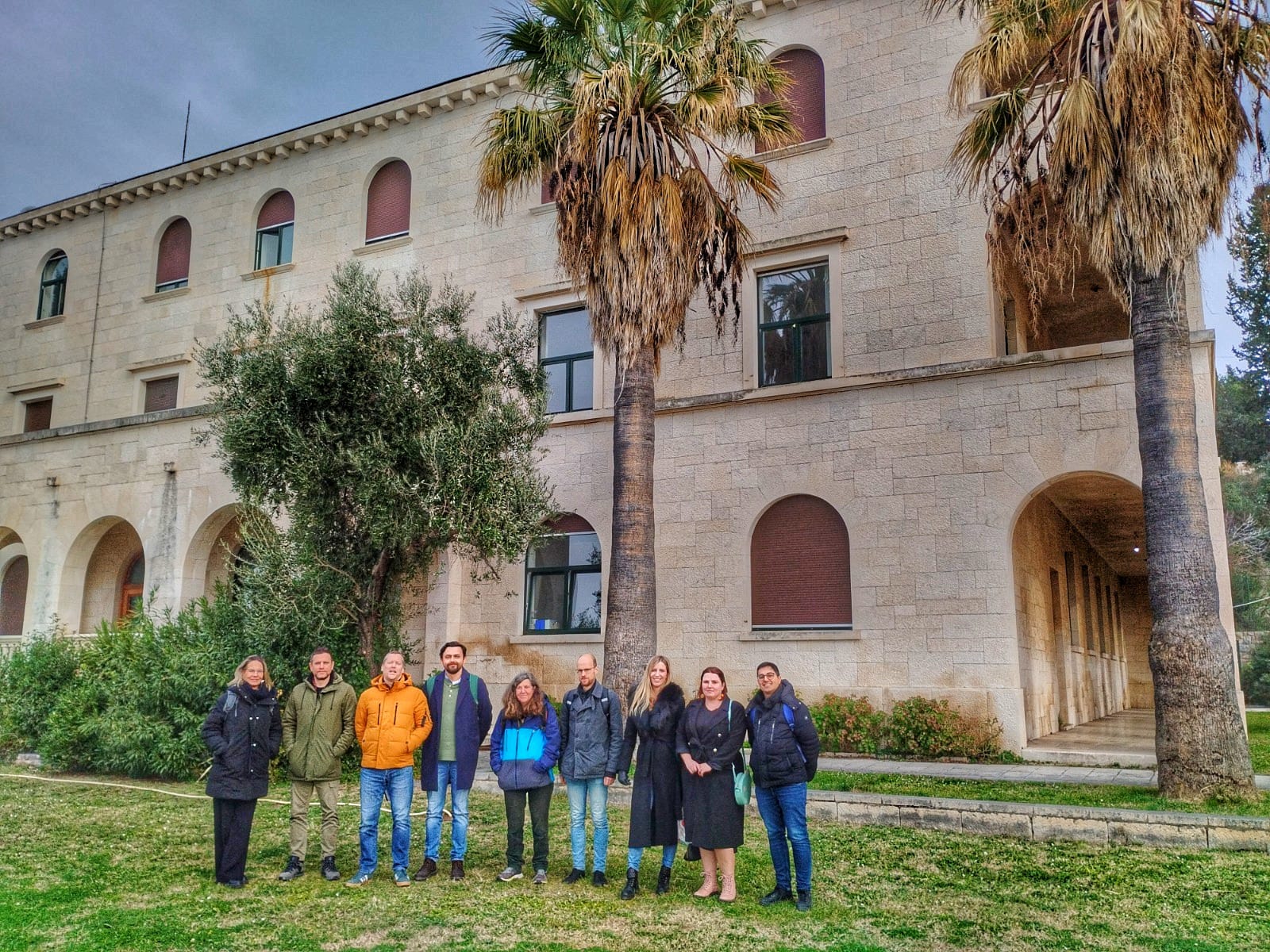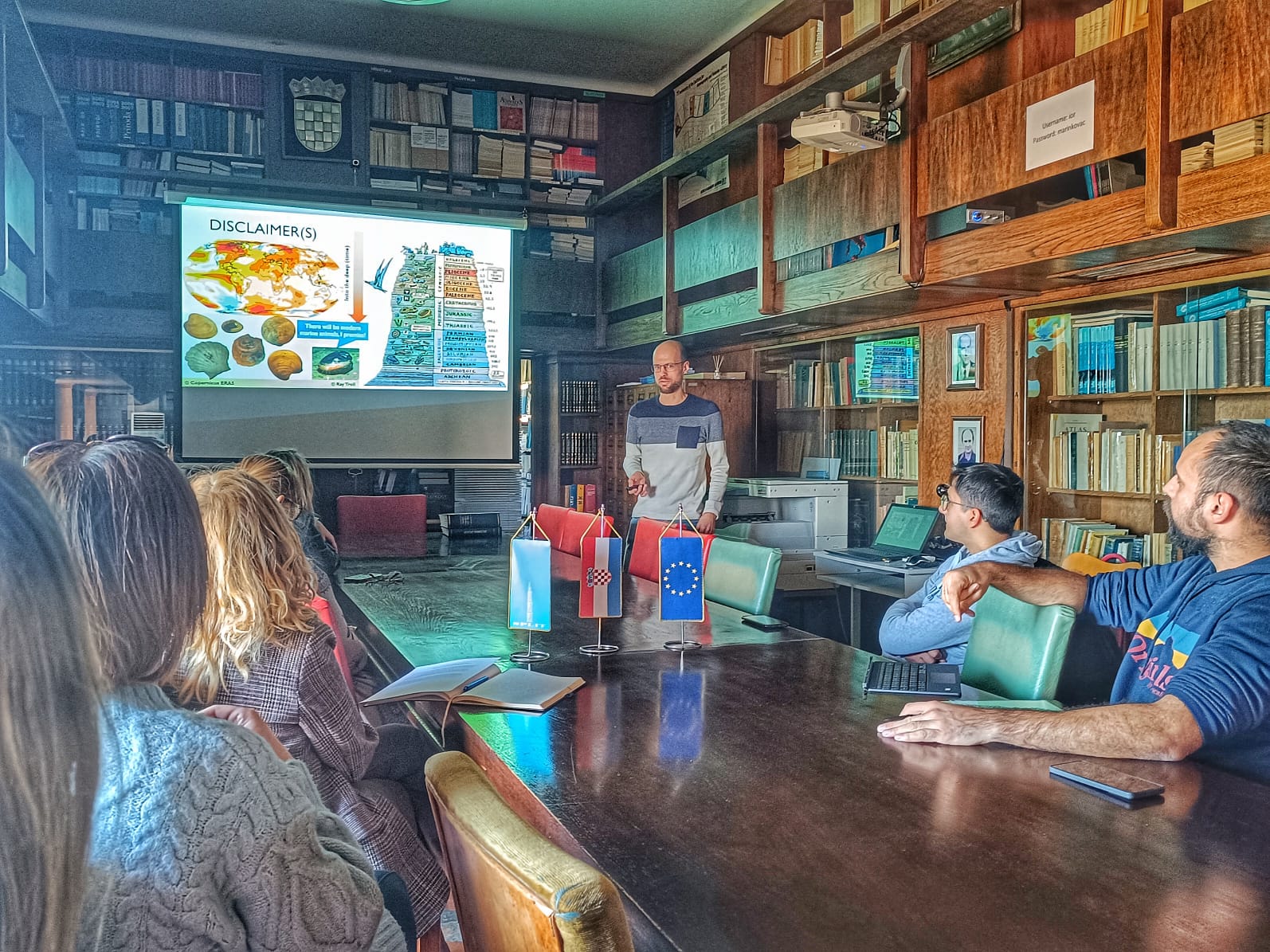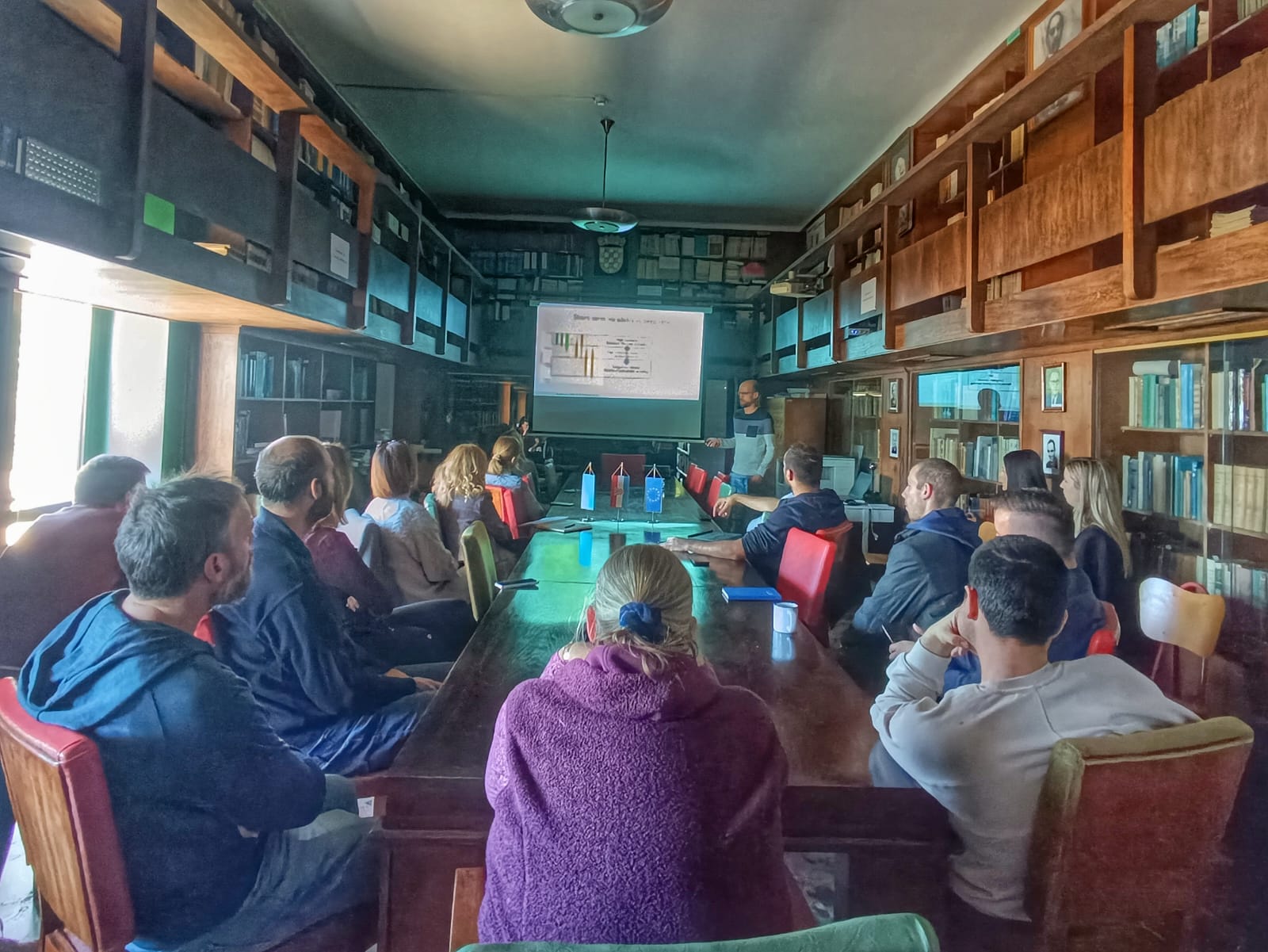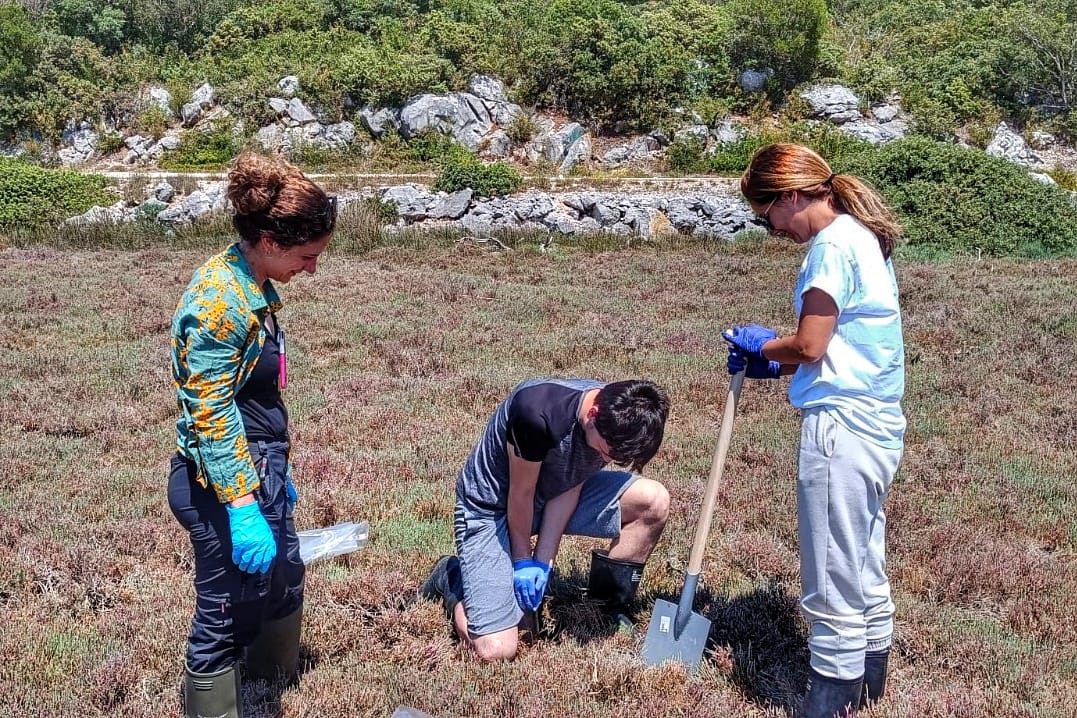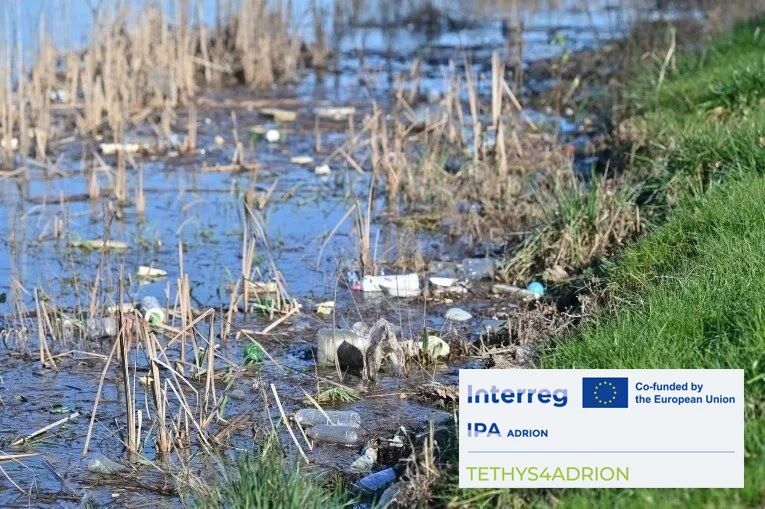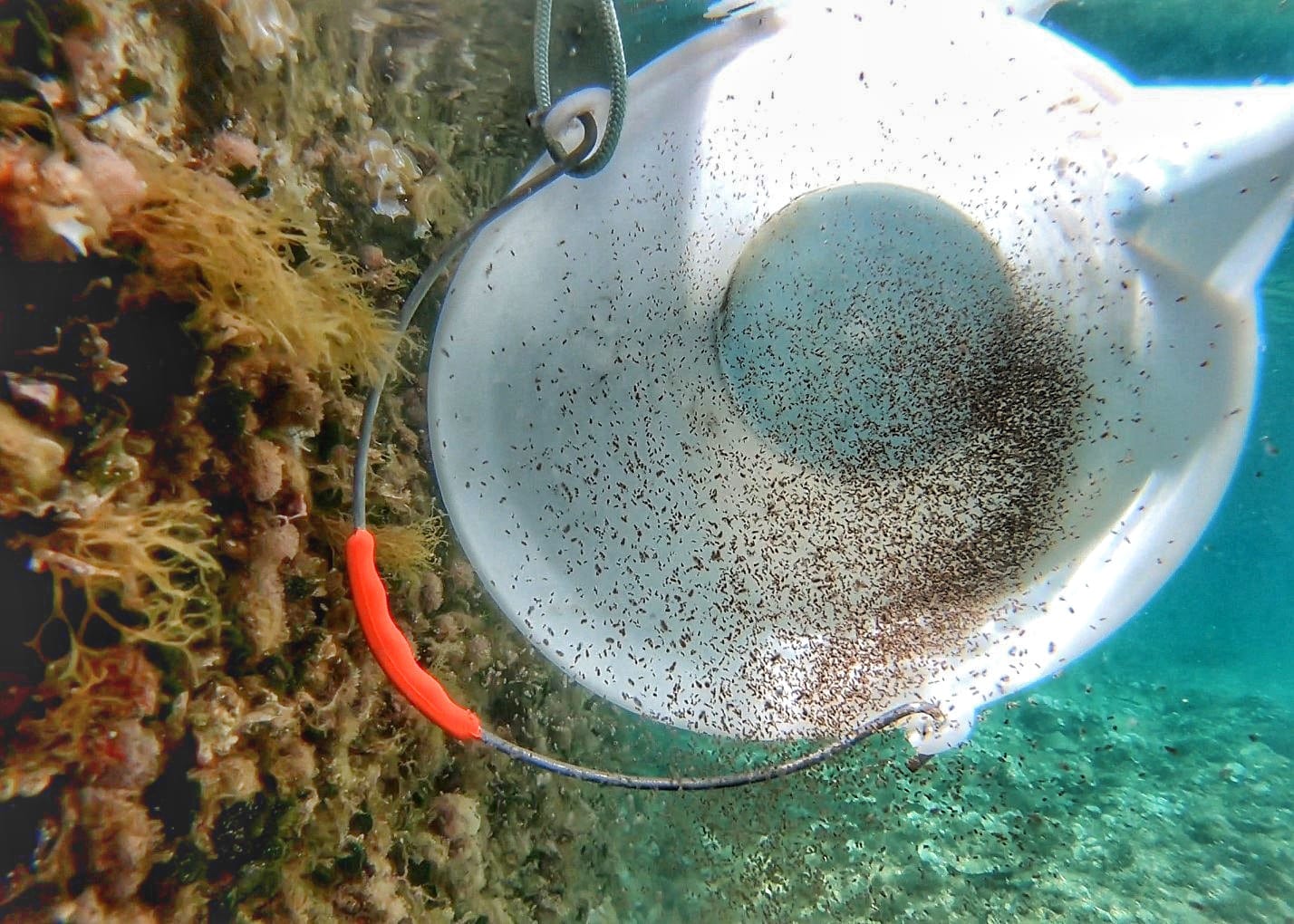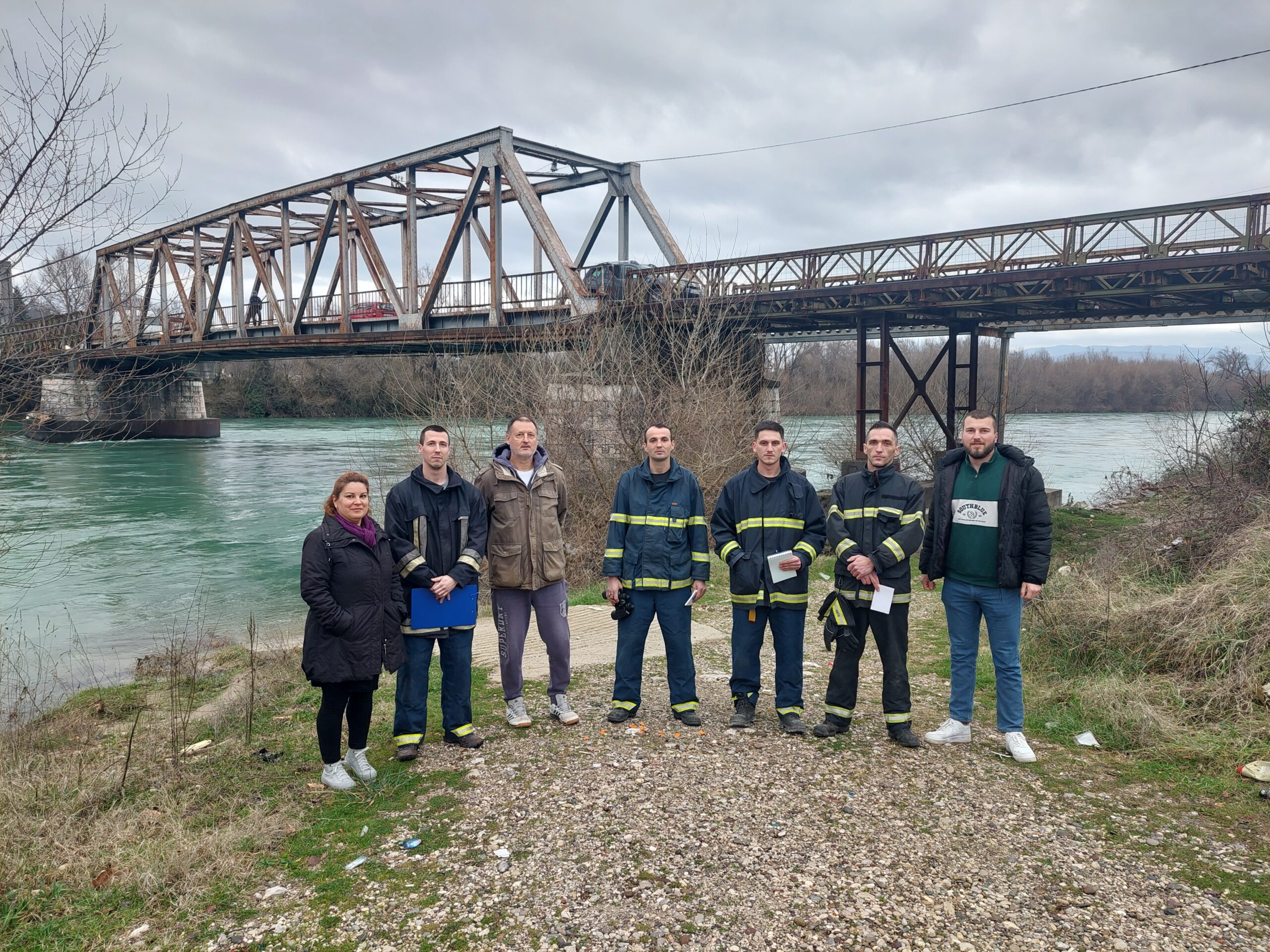The kick-off meeting of the BivalveSPEECH project, funded by the Croatian Science Foundation, took place this week in Split. The project with the full title “Bivalve Sclerochronology – Past Ecological and Environmental Insights for the Future Health of Coastal Ecosystems” started at the end of 2024. The project leader is Dr. Melita Peharda Uljević.
Over the course of three years, bivalve shells collected from archaeological sites and farms along the eastern Adriatic coast will be studied. The aim is to reconstruct historical environmental conditions, understand the seasonality of bivalve growth and provide key data for sustainable aquaculture management in the context of climate change.
In this project, the Institute’s scientists will collaborate with archaeologists Prof. Dr. Dario Vujević and Mario Bodružić and biotechnologist Assoc. Prof. Dr. Ivan Župan from the University of Zadar.
The project also involves international collaborators, such as Prof. Dr. Elizabeth Harper from the University of Cambridge and Dr. Niels de Winter from the Vrije Universiteit Amsterdam (VU Amsterdam), who gave a lecture to the Institute’s scientists on his previous research related to bivalve sclerochronology and geochemical analyses, with a particular focus on environmental changes during the distant past.
Research within the BivalveSPEECH project involves combining environmental observations and modelling with the analysis of growth patterns of bivalves and the geochemical composition of their shells, over an extended period of time, from the Neolithic to the distant future.
The target species are economically important bivalves – the Mediterranean mussel (Mytilus galloprovincialis) and the European oyster (Ostrea edulis).
Project website:
https://galijula.izor.hr/en/projekti/hrzz_bivalvespeech/
